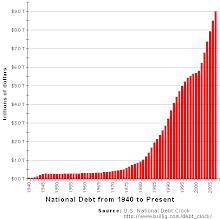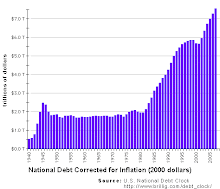JACKSON HOLE, Wyo. — Central bankers from around the world expressed growing confidence on Friday that the worst of the financial crisis was over and that a global economic recovery was beginning to take shape.
“The prospects for a return to growth in the near term appear good,” declared Ben S. Bernanke, chairman of the Federal Reserve, offering optimism both about the United States and the worldwide outlook.
Though the Fed chairman repeated his warning that the economic recovery here was likely to be slow and arduous and that unemployment would remain high for another year, he went beyond the central bank’s most recent statement that economic activity was “leveling out.” Speaking to central bankers and economists at the Fed’s annual retreat here in the Grand Tetons, Mr. Bernanke echoed the growing relief among European and Asian central bankers that their own economies had already started to rebound.
Even as they indulged in a bit of self-congratulation over what had been achieved since the financial crisis of last year, these central bankers were beginning to focus quietly on another big task, how they will unwind the vast emergency measures they put in place to fight the crisis.
At almost the same time that Mr. Bernanke spoke, the National Association of Realtors reported that sales of existing homes jumped 7.2 percent in July — the biggest monthly increase in more than a decade and much bigger than analysts had expected.
Investors reacted ebulliently to both the housing news and to the Fed chairman’s remarks. The Dow Jones industrial average jumped as soon as the markets opened and ended the day up 155.91 points, or 1.67 percent, at 9505.96. Though stock prices are far below their record highs, the Dow has risen 45 percent from March and is at its highest point this year.
Shares of major home builders surged on the improvement in home sales, which was the fourth monthly increase in a row. While forecasters had expected a gain, the size of it jolted investors.
But stocks for a wide range of other companies climbed higher as well, as did the prices of oil, copper and gold. Shares climbed for industrial companies, energy producers and manufacturers of chemicals, plastics and other basic materials.
“This is a bull market,” said Laszlo Birinyi Jr., president of Birinyi Associates, who said he was investing in large banks, well-established technology companies like Apple and big industrial companies like 3M and United States Steel. “There’s just a desire to be in the market and hope that the train will again leave the station.”
Here in Jackson Hole, the mood of relief and cautious confidence among central bankers and economists on Friday was almost palpable — a stark contrast to the anxiety and tension that permeated their retreat here one year ago.
“It is reasonable to declare that the worst of the crisis is behind us, and that the first signs of global growth have appeared earlier than we generally expected nine months ago,” said Stanley Fischer, governor of the Bank of Israel and a top former official at the International Monetary Fund.
In the past week, France and Germany both surprised forecasters by reporting positive growth after a string of quarterly contractions. Japan followed with its own growth report.
The Fed and other central banks will have to unwind a number of emergency measures deployed during the peak of the crisis as growth returns.
A growing number of economists and some Fed officials say the shift to tighter monetary policies and higher interest rates, though unlikely to start until at least the middle of next year, may have to be much more abrupt than normal if they are to prevent inflation two or three years from now.
“When you get into a crisis like this, gradualism is not the right strategy,” said Frederic S. Mishkin, an economist at Columbia University who was a Fed governor from 2006 until 2008. “Of course, when things turn around, you have to be aggressive in the other direction.”
Indeed, the Federal Reserve’s “exit strategy” could lead to a clash with the Obama administration. The White House plans to release its newest budget estimates next week, and administration officials said that the 10-year deficit will rise to $9 trillion — a big jump from its earlier estimate of $7 trillion.
Some Fed officials are already worried about criticism that they are financing the government’s deficits by buying up long-term Treasury securities, and the central bank announced last week that it would end that program next month.
In the future, Fed officials could feel more pressure to further tighten monetary policy as a way of countering the government’s deficit spending. The immense amount of borrowing could push up long-term interest rates, if foreign investors balk at buying up United States debt.
Assessing the extraordinary events of the last year, Mr. Bernanke argued that aggressive action by countries around the world prevented a collapse that would have been even worse than what actually took place.
Asserting that short-term lending markets are functioning more normally, that corporate bond issuance is strong and that other “previously moribund” securitization markets are reviving, Mr. Bernanke said that both the United States and other major countries were poised for growth.
In emphasizing not just an imminent end to the recession but also good chances for actual growth, Mr. Bernanke’s assessment was in some ways surprising.
Despite encouraging signs on many fronts, American retailers have reported unexpectedly weak sales in the last week — a sign that that consumer spending could drag down economic growth in the months ahead. And on Thursday, the Labor Department reported that new unemployment claims jumped again.
And on Friday, a prominent banking analyst warned that hundreds more American banks would fail over the next year, adding to the difficulties that small businesses have experienced in routine borrowing.
“There will be over 300 bank closures,” Meredith Whitney, the Wall Street analyst who accurately predicted last year that Citigroup would have to cut its dividend, said in an interview with Bloomberg Television in Jackson Hole.
Jean-Claude Trichet, president of the European Central Bank, cautioned against assuming that the world was back to normal.
“We still have a lot of work to do,” he said, adding that “it would be a catastrophe” if governments failed to heed the lessons of the crisis and financial regulation.
Mr. Bernanke acknowledged that the banking system’s problems were far from over.
“Strains persist in many financial markets across the globe,” he cautioned. “Financial institutions face significant additional losses, and many businesses and households continue to experience considerable difficulty gaining access to credit.”
Saturday, August 22, 2009
World Bankers Suggest Rebound May Be Under Way
In the August 22, 2009 New York Times article "World Bankers Suggest Rebound May Be Under Way" Edmund L. Andrews reports:
Subscribe to:
Post Comments (Atom)






Theirs no rebound.
ReplyDelete